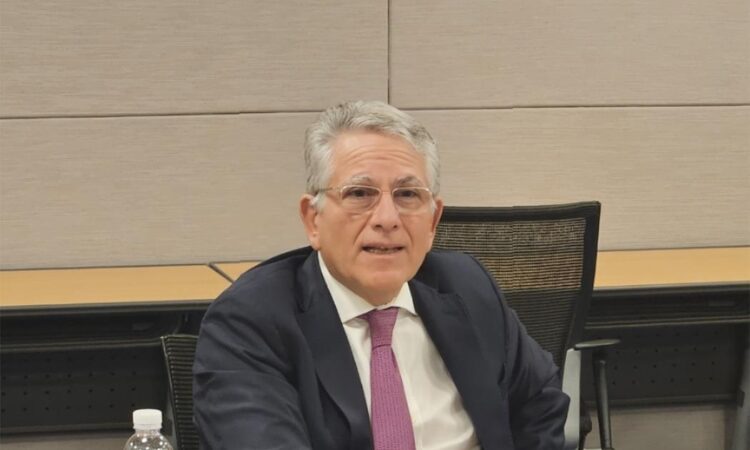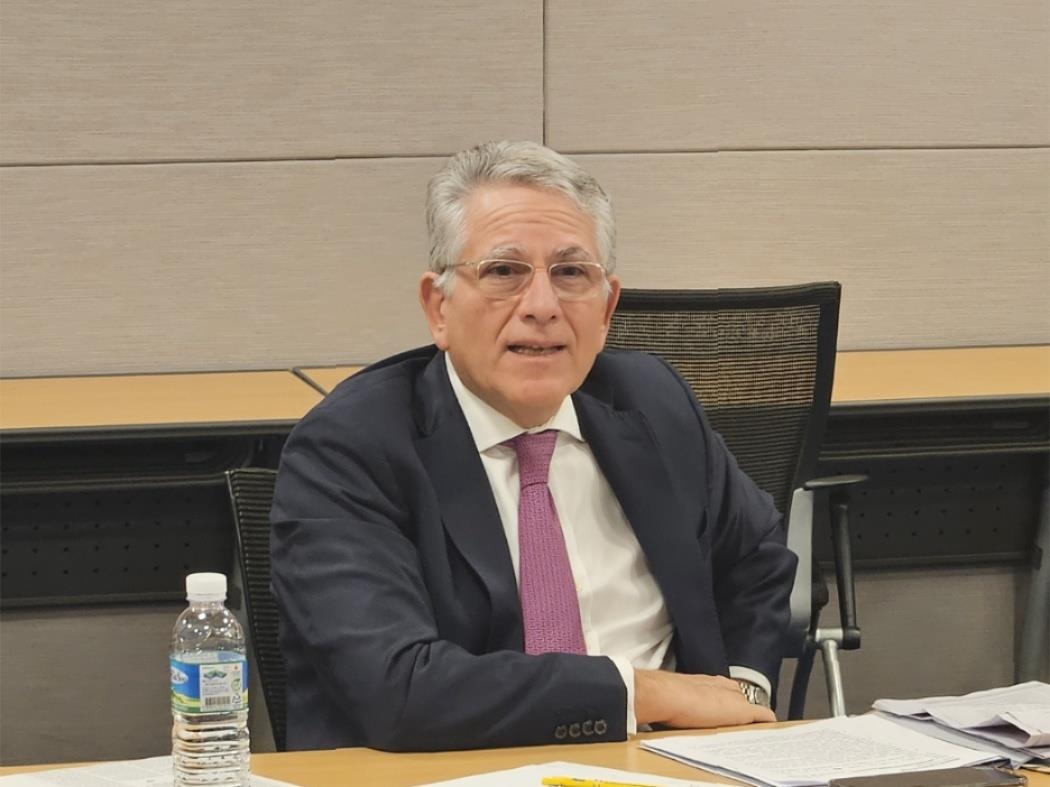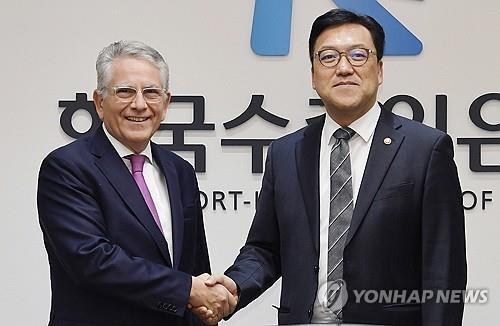(Yonhap Interview) EU to ‘refine guidance’ on carbon border tariff on imports from small firms

By Kang Yoon-seung
SEOUL, Nov. 16 (Yonhap) — The European Commission has been pushing for efforts to “refine guidance” on its carbon border levy against imports from small firms, particularly in the steel sector, a senior European official has said.
Beginning in 2026, the European Union will impose a carbon tariff on imports of certain products, including steel, cement, fertilizer and aluminum, sparking concerns from its trading partners.
Gerassimos Thomas, director-general for taxation and customs at the European Commission, told a group interview that he held a series of meetings with South Korean officials to partly address such concerns.
“For big producers like POSCO or Hyundai Steel, I think they are already quite ready, so we don’t discuss what, but we discuss how to reduce the administrative burden,” he said.
“I think what is important from these meetings is to refine our guidance when it comes to smaller companies,” the official said.
In 2022, the European Union imported 76 million tons of steel, with South Korea accounting for 3.2 million tons.
“We have been very open and transparent about how we develop the instrument to have a long transition period of 2 1/2 years,” Thomas told reporters Wednesday.
“And we are going to design together with third countries in a way to achieve its environmental object,” Thomas added. He was on a visit to South Korea to discuss the bloc’s new carbon tariff called the Carbon Border Adjustment Mechanism.

Gerassimos Thomas, the director-general for taxation and customs at the European Commission, speaks during a meeting with reporters in Seoul on Nov. 15, 2023, in this photo provided by the Delegation of the European Union in South Korea. (PHOTO NOT FOR SALE) (Yonhap)
Thomas noted that Europe is addressing the concerns raised by global businesses, particularly those related to the potential leakage of confidential information during the filing process.
“We are committed to making certain changes to our identification system so that the registry system allows confidential information to be accessed only by authorities,” Thomas said.
The official added companies will also be asked to file reports annually instead of quarterly after the transition period to ease their administrative burden.
“We need quarterly reporting to collect information to make a final design (during the transition period),” the official said.
Also on Wednesday, Thomas held a meeting with South Korea’s First Vice Finance Minister Kim Byoung-hwan.
During the meeting, Kim asked the European Union to recognize South Korea’s own carbon credit certification system regarding the EU’s carbon border tax mechanism in an effort to prevent unnecessary burdens on companies, according to Seoul’s finance ministry.
Thomas said the EU will consider opinions from the South Korean government and businesses and will continue close consultations on the issue, the ministry said.

This photo, provided by South Korea’s finance ministry, shows First Vice Finance Minister Kim Byoung-hwan (R) shaking hands with Gerassimos Thomas, director-general in the Directorate-General for Taxation and Customs Union at the European Commission, ahead of their meeting in Seoul on Nov. 15, 2023. (PHOTO NOT FOR SALE) (Yonhap)
[email protected]
(END)






